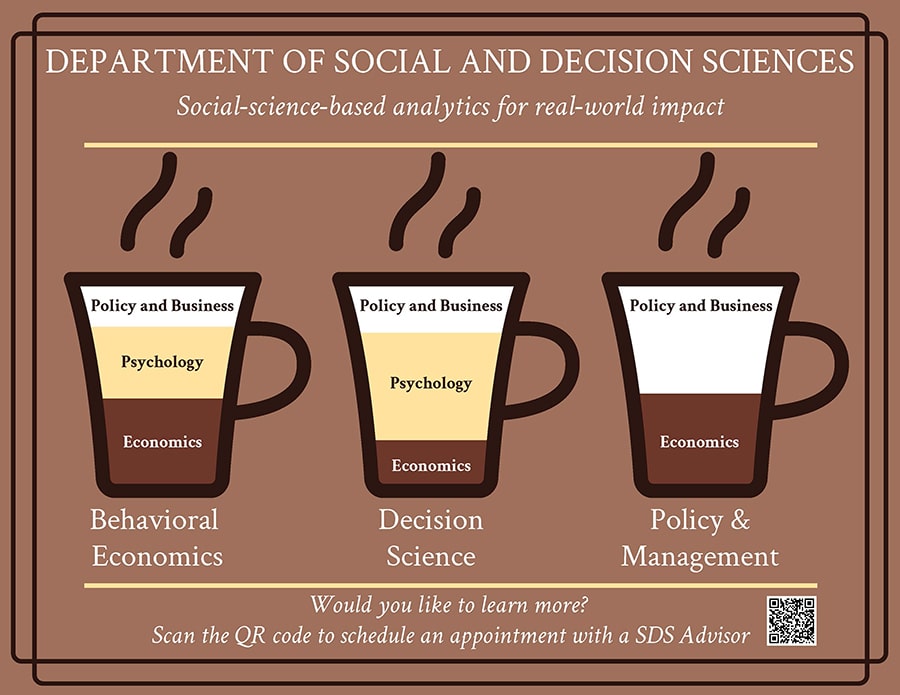Social and Decision Sciences Undergraduate Program
The department offers undergraduate majors in Behavioral Economics, Decision Science and Policy and Management. All majors can be primary or additional majors.
The core courses leverage our strength in decision analysis, empirical research, organizations, policy analysis and applied psychology. In addition to completing this core, students also specialize in their major area through a set of required and elective courses.
Our faculty is committed to the academic success and growth of our students and many of our undergraduates work with faculty on research projects and internships. The directors of the majors and academic advisors are easily accessible and encourage students to talk with them about their curriculum, progress, and available opportunities.
The Department of Social and Decision Sciences has a long history of creating innovative and prescient undergraduate programs that combine key ideas from across the social sciences into cohesive majors that allow our graduates to excel in their chosen professions or in the pursuit of advanced studies. Our emphasis on the theory and practice of individual and social decision-making linked with our high-quality, multidisciplinary social science faculty, provides a solid foundation from which graduates can embrace a variety of future paths.
Hear from department head, Gretchen Chapman
Want MORE SDS NEWs?
If you are a current CMU undergraduate student and would like to be added to the weekly undergraduate newsletter, please email Lizzy Stoyle and make sure to follow us on Instagram @sds_at_cmu!
Interested in keeping up with general SDS updates?
Subscribe to our mailing list:
Share with us!
Are you involved in research? Did you just receive an awesome position? Organizing an event? Please send any interesting news stories to Lizzy Stoyle, who will feature the story to the SDS community.
